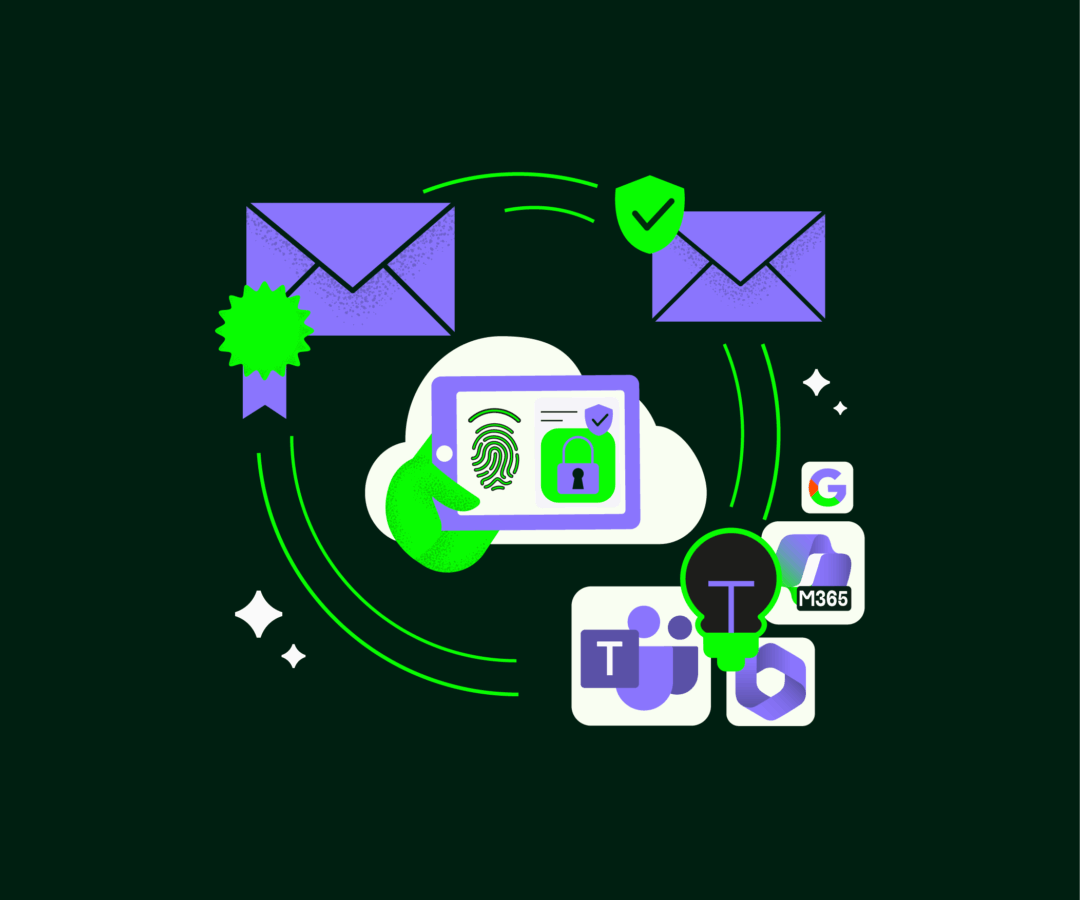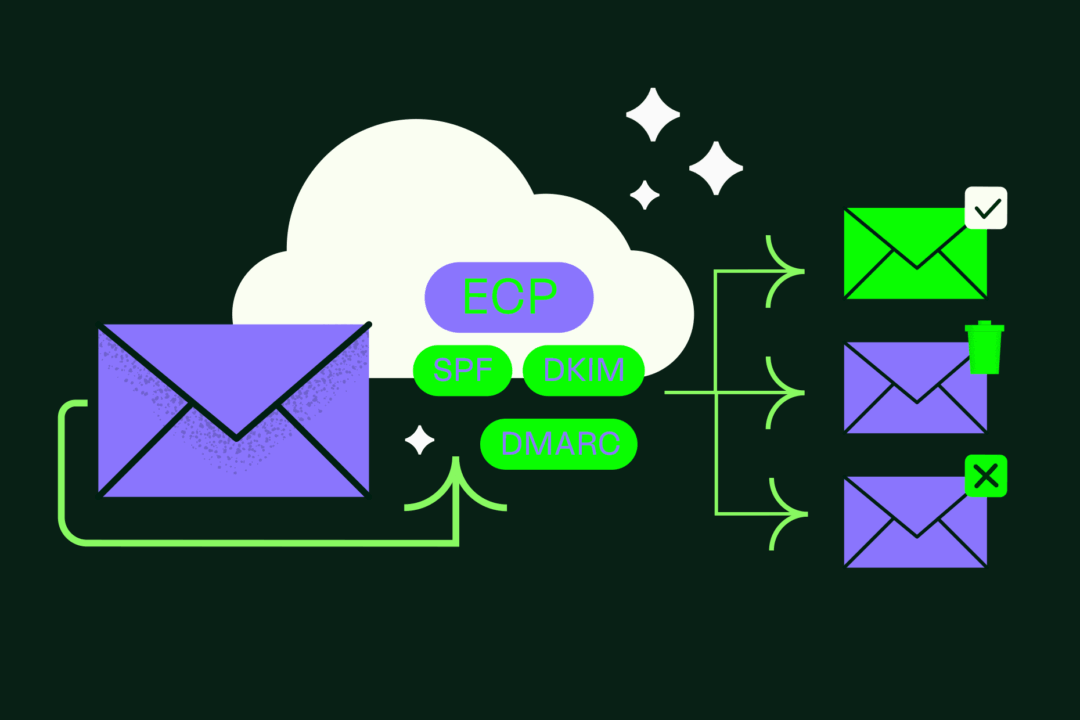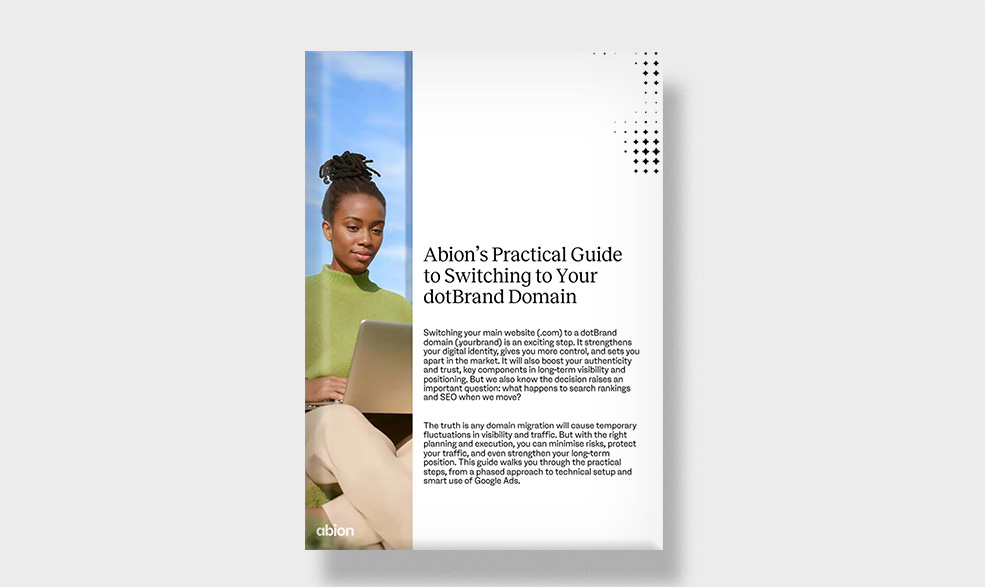3 reasons email is your biggest security risk and how to protect it
- Firstpage
- Websecurity

Email is one of the most trusted tools in business, and one of the easiest to exploit. Knowing where the risks lie, and how to mitigate them, is key to protecting your organisation.
Why email is one of the biggest security risks
Phishing, spoofing, and business email compromise (BEC) continue to be among the most common causes of cybercrime. In 2024 alone, these attacks accounted for more than €14.3 billion in reported losses, according to the FBI IC3 Report.
1. Phishing is still where most attacks begin
Despite growing awareness, email is still how most attacks start. It’s familiar, fast and built on trust, the very thing criminals use to their advantage.
Around 60% of all data breaches involve the human element, such as phishing or social engineering (Verizon Data Breach Investigations Report, 2025).
Phishing techniques have evolved: they now use AI to craft better messages, mimic real communication patterns, and even hijack legitimate email threads.
Attacks like these can easily slip past traditional spam filters. And here’s where a solution such as Avanan comes into play.

2. Spoofing and domain impersonation are on the rise

Criminals can register domains that look almost identical to your company’s and use them to send fraudulent messages to customers, partners, or employees.
Without proper authentication (SPF, DKIM, DMARC, and now VMC), recipients can’t tell the difference between a real and a fake sender. This damages trust and can cause severe financial and reputational damage.
3. Lack of visibility and control across domains
Many organisations have complex domain portfolios with inconsistent setups, unmanaged DNS records, or expired certificates.
These gaps create blind spots attackers can exploit. Without proper monitoring, it’s impossible to know who’s sending emails on behalf of your brand, or if they’re legitimate.

Inbound vs. Outbound Risk
Effective email security protects both what comes in and what goes out.
Inbound protection stops phishing, spoofing, and malware before they reach employees.
Outbound protection ensures only verified emails leave your domain, preventing impersonation and maintaining customer trust.
Which Email Solution is Right for You?
Each email security service addresses different types of threats. Here’s a quick comparison of the inbound and outbound solutions:
Solution
Protection Focus
Inbound/Outbound Email
Key Benefits
Email Compromise Protection
Prevents phishing and spoofing
Inbound & Outbound
Strengthens domain security and trust
Verified Certificate Mark
Enhances brand recognition
Outbound
Displays your logo in recipient inboxes
Avanan
Cloud email and collaboration security
Inbound
AI-driven phishing and malware protection
SPF Flattening
Improves email deliverability
Outbound
Reduces risk of authentication failures
SERVICES
Explore Our Email Security Solutions
These components work together to provide robust protection for your organisation’s email infrastructure, ensuring secure and reliable communication. Here’s a quick look at our main solutions:
Email Compromise Protection (ECP)
Prevents unauthorised access and impersonation attacks, keeping your communication secure.
Verified Mark Certificate (VMC)
Enhances brand trust by displaying your logo in inboxes, while ensuring compliance with authentication standards.
A cloud-based solution that safeguards against phishing, ransomware, and other advanced threats with cloud-based, AI-driven security.
Simplifies sender authentication, reducing the risk of email spoofing.
Would You Like to Have a Secure Email?
Fill in the form and we will make sure that you get started!


